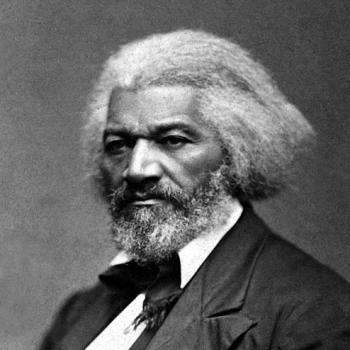
Lt. Col. Arnaud Beltrame is a hero
On the morning of March 23, 2018, a man named Redouane Lakdim hijacked a car, killing a passenger and wounding the driver. While driving the stolen car, he fired a gun at a group of police officers who were jogging on their morning run, injuring one. Eventually, Lakdim made his way to Trèbes, a small town in the south of France, where he charged into a grocery store and took hostages.
One of the first responders to the scene was Lieutenant Colonel Arnaud Beltrame, a French police officer. The police negotiated with Lakdim and he released all of the hostages in the supermarket but one. Lt. Col. Beltrame offered himself in place of the final hostage, a woman named Julie. Beltrame surrendered his weapon and entered the store, swapping places with the final hostage. He attempted to negotiate with Lakdim to no avail. Shots were fired and then the authorities rushed in and killed Lakdim. Beltrame was critically wounded and died on Saturday, March 24.
Beltrame offered his life for a perfect stranger. He is a hero. French President Emmanuel Macron immediately recognized this beautiful act for what it was saying, “Arnaud Beltrame died in the service of the nation to which he had already given so much. In giving his life to end the deadly plan of a jihadi terrorist, he fell as a hero.”
In agreement, Cedric Beltrame, the Lieutenant Colonel’s brother added this:
Beyond his job, he gave his life for someone else, for a stranger…He was well aware he had almost no chance. He was very aware of what he was doing … if we don’t describe him as a hero, I don’t know what you need to do to be a hero.
Absolutely this man is a hero. But when I first read about this powerful story, “hero” wasn’t the first word that came to mind. The first word that immediately popped into my mind was “saint.”
Lt. Col. Arnaud Beltrame is a saint
According to, Aleteia, a Catholic news website based in France, Beltrame was a practicing Catholic. Citing an interview with Father Dominique Arz, national chaplain of the gendarmerie (the armed police force in France). This is what the priest said about Beltrame:
It turns out that the lieutenant-colonel was a practicing Catholic. The fact is that he did not hide his faith, and that he radiated it, he bore witness to it. We can say that his act of self-offering is consistent with what he believed. He served his country to the very end, and bore witness to his faith to the very end…To believe is not only to adhere to a doctrine. It is first to love God and your neighbor, and to testify of your faith concretely in everyday life, in the happy or unhappy circumstances, and even in the dramatic circumstances of our lives.
In many ways, Beltrame’s act of self-sacrifice embodies the radical love required of all Christians. It is the love modeled for us by Jesus Christ and it is into this same love that Christians are invited.
Greater love has no one than this, that someone lay down his life for his friends (John 15:13).
What an incredibly powerful and moving testimony to the Christian faith. Such beautiful displays of love and virtue ought to be celebrated. I think they ought also to give us pause; they present us with an opportunity for self-reflection. I encourage you to do a little personal inventory. Ask yourself: Would I be willing to offer myself like Lt. Col. Beltrame? Would I be willing to die for someone I love, let alone a perfect stranger?
I suspect most of us would like to at least think we would have the courage to offer our lives for another. I know I hope I would. But would I really? Perhaps one can never actually know how they would respond until the opportunity presents. Fair enough. Still, I think we can get an idea of how we would behave in such pressure-filled moments but looking at how we act in the more pedestrian.
Self-examination
What do I mean by this? What I mean is this: if you are loving self-sacrificially in the small and seemingly trivial moments, I think you can have confidence that you would also be the type of person who would love self-sacrificially in the big, seemingly more consequential ones. It’s an a fortiori argument of sorts. If you can’t love your friends well, why would anything think you’ll be able to love your enemy?
I don’t think we make these kinds of decisions spontaneously. Again, I think Arnaud Beltrame’s life is a reflection of this principle. It turns out Lt. Col. was the type of man whose self-sacrifice surprised no one who knew him. His mother said as much. Upon hearing that a lieutenant colonel exchanged himself to free a hostage, she knew immediately that it was her son. Citing her interview on the French radio network RTL, the New York Times reports her as saying this: “I am not surprised that it was him. He has always been like this.”
The remarkable story of Arnaud Beltrame offers us a much needed opportunity. It gives us the chance to honor the rare beauty of self-sacrificial love. It also reminds us to inspect how we’re living our lives. When presented with the question “Would I be willing to swap places with the final hostage?”, the best indication as to the answer has far less to do with any good intentions I might have and far more to do with how I behaved today. This is because the best indication for faithfulness tomorrow isn’t promises, or intentions, or desires but is faithfulness today.











